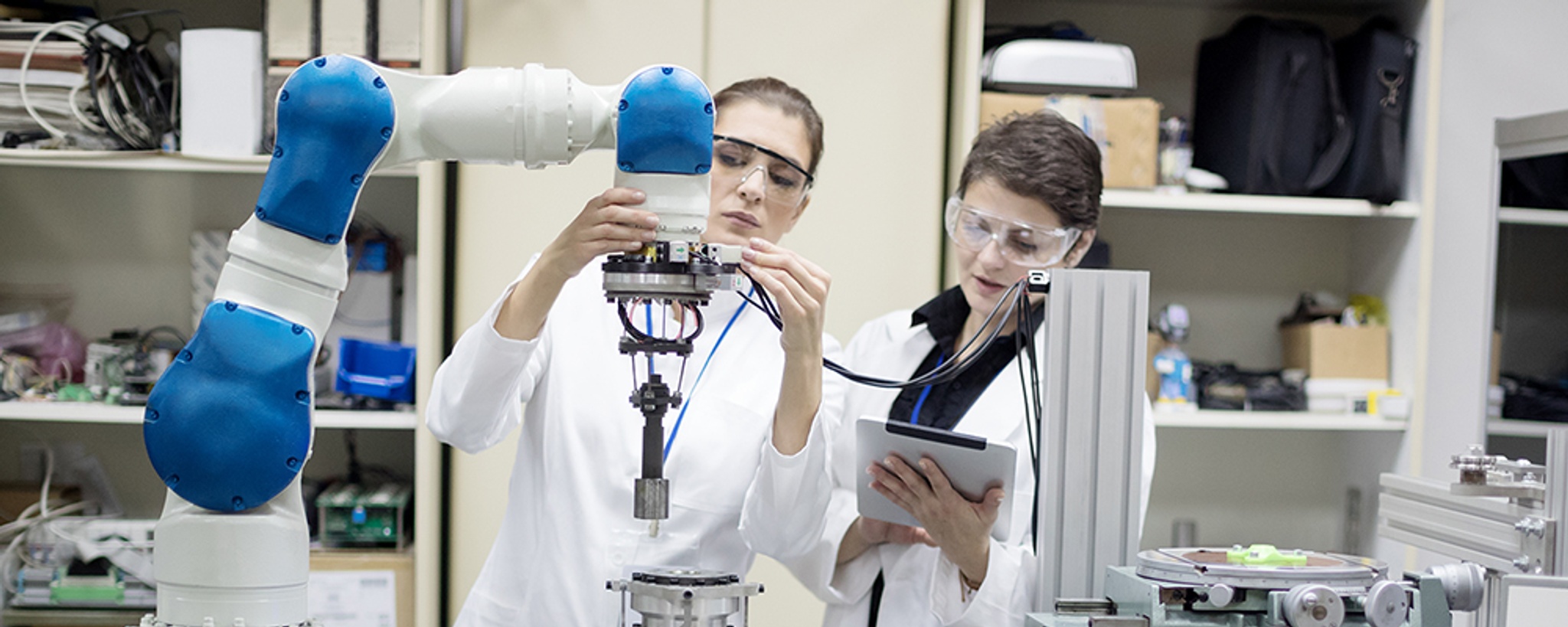Science and R&D
Navigate forward to interact with the calendar and select a date. Press the question mark key to get the keyboard shortcuts for changing dates.
Navigate backward to interact with the calendar and select a date. Press the question mark key to get the keyboard shortcuts for changing dates.
As nations engage in a race for global advantage in innovation, ITIF champions a new policy paradigm that ensures businesses and national economies can compete successfully by spurring public and private investment in foundational areas such as research, skills, and 21st century infrastructure. In the area of science and R&D policy, ITIF promotes public and private investment in research and development through public funding for research at national laboratories and universities, tax incentives to encourage business R&D, and policies to spur technology transfer from lab to market.

Vice President, Global Innovation Policy, and Director, Center for Life Sciences Innovation
Information Technology and Innovation Foundation
Read Bio
Head of Policy, Centre for Canadian Innovation and Competitiveness
Information Technology and Innovation Foundation
Read BioFeatured
China Is Rapidly Becoming a Leading Innovator in Advanced Industries

There may be no more important question for the West’s competitive position in advanced industries than whether China is becoming a rival innovator. While the evidence suggests it hasn’t yet taken the overall lead, it has pulled ahead in certain areas, and in many others Chinese firms will likely equal or surpass Western firms within a decade or so.
Why Congress Should Restore Full Expensing for Investments in Equipment and Research and Development

The tax law allowing firms to fully expense their research and development (R&D) costs expired at the end of 2021, and full expensing of equipment costs will begin phasing out in 2023. This decreases firms’ incentive to invest in these key drivers of economic growth and competitiveness. Congress should restore and make permanent full expensing for these investments.
More Publications and Events
February 9, 2026|Reports & Briefings
Tracking R&D Leadership: US Advantage Narrowing as China Gains Ground
Maintaining R&D leadership in advanced industries is critical to U.S. economic competitiveness and national power. But on a size- and wage-adjusted basis, China is rapidly gaining ground. Congress needs to boost corporate R&D incentives to prevent America from falling behind.
January 5, 2026|Blogs
Top 10 Tech Policy Pronouncements, Prognostications, and Questions for 2026
If the year ahead in technology and innovation policy lives up to its potential, it could be a consequential one because there is a long list of important issues on the table. Herein, we offer 10 that are on top of our minds.
December 23, 2025|Blogs
The United States Should Retain International Graduates to Meet Demand for STEM Talent
The United States increasingly relies on foreign talent, specifically temporary visa holders who earn STEM degrees at American universities, to fill critical roles in advanced industries. Policymakers should implement an expedited green card process for these individuals, particularly in computer science and engineering, to ensure U.S. competitiveness and retain this highly skilled workforce.
December 18, 2025|Blogs
US Brain Drain Threatens Scientific and Biopharmaceutical Leadership
The United States risks a serious brain drain as NIH funding cuts, canceled grants, and program rollbacks push early-career scientists abroad, threatening America’s long-term biomedical capacity, innovation leadership, and national competitiveness unless policymakers act to stabilize and strengthen research support.
December 18, 2025|Testimonies & Filings
Comments to OSTP Regarding Accelerating the American Scientific Enterprise
The science community must move beyond the linear model of scientific research developed and encouraged by Vannevar Bush, and realign scientific exploration with national interests, especially in the face of the growing technological and economic threat posed by China.
December 8, 2025|Blogs
Fact of the Week: Public R&D Investment in Brazil Increased National Agricultural Productivity by 110 Percent
From 1970 to the present, agricultural research conducted by a public research foundation in Brazil has increased Brazilian agricultural productivity by 110 percent.
December 4, 2025|Blogs
Innovation Doesn’t Equal Productivity, and Patents Don’t Always Represent Innovation
Economists’ reliance on R&D and patent metrics distorts our understanding of productivity growth. Time to correct the conclusion: Here’s why these proxies fail to capture the forces that do drive it.
November 21, 2025|Blogs
Patterns of US-based Firms’ Foreign R&D Investments
Research and development (R&D) is central to a firm’s competitiveness, both domestically and internationally. Data from the National Science Foundation shows that U.S.-based firms have increased foreign R&D investment flows over the last decade.
November 17, 2025|Blogs
The Case for Expanding Federal and State R&D Incentives
U.S. R&D is becoming increasingly concentrated in a handful of states just as China accelerates its lead in advanced industries. Federal and state policymakers must expand R&D tax incentives and targeted academic research funding to reverse this trend, spur nationwide innovation, and bolster U.S. competitiveness.
November 14, 2025|Blogs
USG Investment in Industrial Research Low Compared to OECD Peers
The United States is investing less in R&D for industrial production than its OECD peers. Congress should increase investment in this area to better compete with China.






